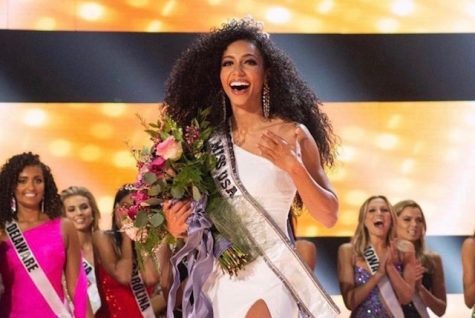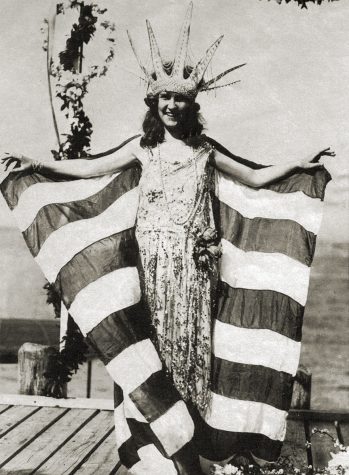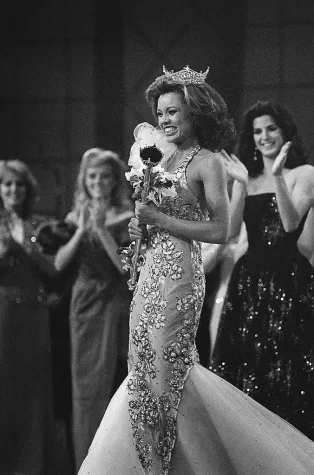Pageants & Perfection
Photo taken from Creative Commons. Pageants & Perfection- the unattainable perfection that’s perpetuated by the pageant community.
February 9, 2022
Beauty queens – the definition of perfection, right? For hundreds of years, women have competed to show others their worth, whether it be in pure beauty or the occasional addition of intelligence. The societal expectation of winners of major pageants, such as Miss America or Miss Universe, is that we are seeing the most perfect woman in the nation grace our screens and represent an idealistic vision of what our world should be. But now, in the age of social media and rising focus on mental health, how does this weigh on the pageant world and its expectations for winners?
Cheslie Kryst:

On January 30th, the pageant community was rocked with the news that 2019 Miss USA winner, Cheslie Kryst, died of suicide at only 30 years old. Throughout her career, she had been transparent about her struggles with being black in the pageant world, and the physical standards of the competitions being far from attainable.
Many of her fans, even friends and family, have struggled to understand how such a strong woman could fall into depression without them knowing. Sadly, the facade of a beautiful icon easily crumbles when placed among similar statistics.
According to the study “Childhood beauty pageant contestants: associations with adult disordered eating and mental health,” those who participate in beauty pageants at a young age often struggle more severely with “…adult body dissatisfaction, interpersonal distrust, and impulse dysregulation.” While this study doesn’t necessarily support the idea that these individuals struggle more with eating disorders or mental health issues like depression, it demonstrates that there is a strong correlation between these competitions and adverse mental health effects.
The Controversy of Appearance:

Due to society’s changing views on judging women for their physical appearance, pageant systems like Miss America are changing their terminology and (apparently) their judging criteria for this category to focus on the health of an individual rather than beauty.
The only example we have of their attempt to change is the 2018 removal of the swimsuit aspect of the competition. In replacement, they have instituted an “…interactive session with the judges…” to “…highlight her achievements and goals in life…” While this can be seen as an obvious improvement, we know very little about the changes being made behind the scenes in support of the contestants.
So far, all the Miss America pageant has stated is “Miss America is pivoting their mission to define women’s wellness as being based on optimal health, rather than physical appearance.” This doesn’t give any insight into changes on the score sheets, how optimal health will be defined, and how stereotypes that act as a barrier to body positivity will be dealt with.
Perfection Is Unattainable:

The extreme pressure and expectations placed on these pageant contestants have effects that are not unfounded. One historical example is 1984’s Miss America winner, Vanessa Williams. Upon the discovery that she posed nude for Penthouse magazine, she was stripped of her title. In 2004, the winner of Miss Nevada USA, Katie Rees, was forced to give up her title when nude photos of her surfaced. Miss Puerto Rico’s 2016 winner was even barred from competing in the Miss Universe competition for “bad behavior” in the face of the press.
At any sign of a beauty queen being imperfect in the eyes of society’s expectations of a female public figure, she is subjected to humiliation for her “faults,” even if these faults are just expressions of autonomy or out of her control. Not to mention they may face losing their title if they are found to have children or be pregnant, which further perpetuates the idea that women only hold value if they’re single, not yet a mother, and fall into societal stereotypes of beauty.
The pageant world has been highly affected by the passing of Cheslie Kryst. In the wake of her death, it is likely that the expectations for these representatives of women will be re-evaluated and that some “aging” statutes will be removed. The pageant industry has the opportunity to make a lot of beneficial changes to their competitions in the coming months, and we can only hope they will take it.









Carol LaChance • Feb 9, 2022 at 10:27 AM
Excellent . Riley you are wise beyond your years. Very important topic!!!